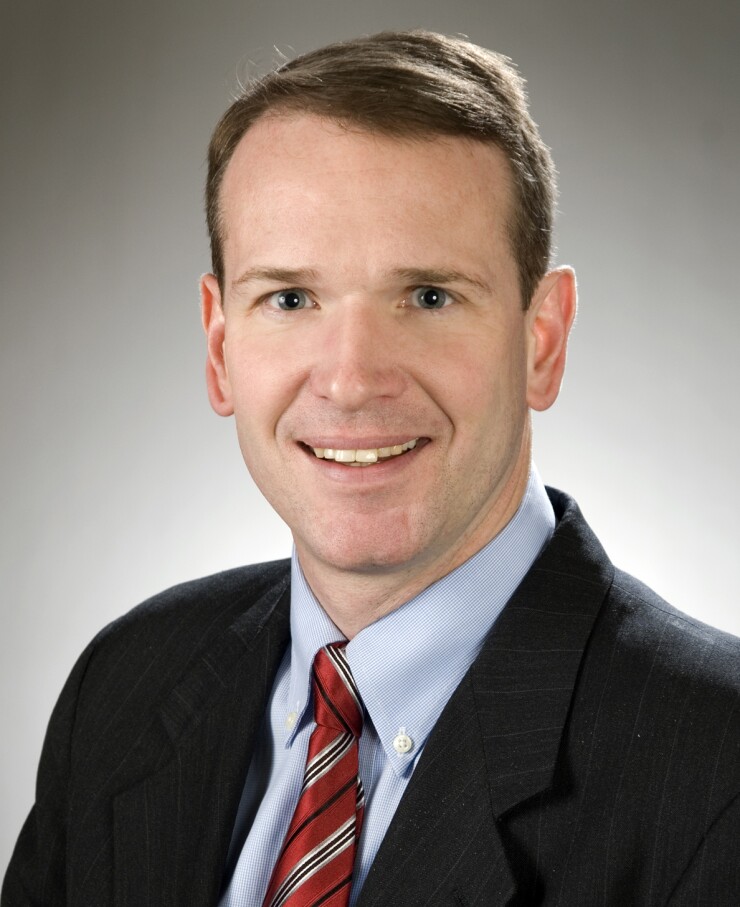
A $5 million capital raise may not seem like a big deal in today's marketplace, but a planned private placement in that amount by a Cincinnati-based savings and loan association carries with it major implications for depositor-owned community banks.
Warsaw Federal Savings and Loan Association, a $105 million-asset subsidiary of First Mutual Holding Company in Lakewood, Ohio, is raising cash to better serve customers in Cincinnati's Price Hill and Saylor Park neighborhoods. The 131-year-old depositor-owned community bank announced an initial closing Monday, receiving an undisclosed sum from five bank investors. The entire $5 million, including Monday's tranche, will count as Tier 1 capital for regulatory purposes, according to Warsaw Federal,

"The new capital will provide support for the growth that we envision for our organization," CEO Robie Suggs said Monday in a press release. "It is an exciting time for us and we're incredibly enthusiastic about our future."
Despite its small size, other mutual banks appear to be taking note of Warsaw Federal's capital raise. "Based on conversations I've had with other mutual banks, I think there's a lot of interest," Joe Pigg, senior vice president and senior counsel at American Bankers Association, said.
The broader significance of Warsaw Federal's private placement lies in its potential to give depositor-owned banks a new means of raising capital, along with retained earnings, which take years to accumulate, and subordinated debt, which is expensive and temporary in nature. Warsaw Federal's private placement offers the opportunity to shake up the status quo.
"Any way mutuals can work together to find ways to move the needle on alternative Tier 1 capital options, I think it's incumbent on all of us to understand how we can support that," Gregg Tewksbury, president and CEO of the $3.8 billion-asset New Hampshire Mutual Bancorp in Concord, said Monday.
New Hampshire Mutual is one of the five banks involved in Monday's initial closing. Both Pigg and Tewksbury referred to the funds Warsaw Federal is raising as "patient capital." While it is redeemable, there is no set date, "so the expectation, I think, for most investors is that it's going to be on Warsaw Federal's balance sheet for a very long time," Tewksbury said.
The investment instruments pay 8% interest. "This is patient capital, but it is an investment," Pigg said. The motivation to retire the debt will come as Warsaw Federal puts the capital to work expanding its regular earnings stream. "It's a bridge to get them to the growth that they need…to both take care of the community and become a little bit larger bank to deal with the cost structure of an independently chartered institution," Tewksbury said.
Tewksbury added he is hopeful the transaction might slow the steady stream of depositor-owned banks converting to stock ownership. "We think the opportunities to find alternative capital instruments for mutual banks is a significant pathway forward for options for mutuals to stay mutuals and not go public," Tewksbury said.
The issue is so important to Tewksbury he is helping organize a "capital summit" in New Hampshire later this year aimed at familiarizing regulators and lawmakers with alternative mutual capital.

Depositor-owned banks and savings institutions numbered into the thousands for much of the 20th century. Since the mid-1970s, however, their number has declined steadily, due mostly to conversions to stock ownership. The Federal Deposit Insurance Agency
"For years, mutuals have been more likely, if they needed capital, to convert to stock," Fraser said. "There's nothing wrong with that, but that's been the trend. It's why the number of mutuals has shrunk to under 500, and it's the forfeiture of community ownership."
Now though, depositor-owned banks intent on raising capital while also preserving their mutual status should be able to tap into a widening pool of potential investors, beyond other banks, according to Fraser. "These types of investments are attractive to purpose-driven investors," Fraser said. "Mutuals are in the service of their community and are an extension of the community and are more or less owned by the community."
For many, the idea of supporting a depositor-owned bank strikes a chord because the benefits are tangible and measurable," Charley Cummings, CEO of Walden Mutual Bank in Concord, New Hampshire, said. Investors "can see the impact of their dollars in their community and region."
"The opportunity is there for other mutuals,' Cummings added.
Warsaw Federal's closing comes just under two years after Walden Mutual became the
"When Walden Mutual got its charter…that spurred a lot of interest, both among mutual banks and with the regulators," Pigg said. Walden "had to go through a lot of hoops to get the regulators on board…I know it was pretty meticulous what Walden went through to make sure they were answering all the regulators' questions and doing this in the most thoughtful way."
"When [Walden Mutual CEO] Charley Cummings spent a considerable amount of time and money to form that bank, it opened the doors," Tewksbury said. "We look at what Tom Fraser is doing with Warsaw Federal to be another path forward."
For his part, Cummings said he was "flattered" by talk of Walden's role in ongoing alternative capital discussions among depositor-owned banks. "I hope it's true," Cummings said. "We hoped it would be true when we were getting started."
"Who wouldn't want to see the mutual industry expanded," Cummings said.






